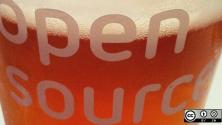In this week's edition of our open source news roundup, we take a look at the the security of commercial open source, Google's surprise launch of ODF support, Uganda adopting free and open source software, and more.
Open source news for your reading pleasure
December 22 - December 27, 2014
Is commercial open source more secure than proprietary alternatives?
Security has always been one of the big selling points of open source software. But is there any truth to the claim that open source software is more secure than proprietary software?
That's what this article in SC Magazine UK by Olivier Thierry, CEO of Zimbra, examines. Thierry concludes that open source provides transparency and that transparency "improves code quality. And, since quality and security tend to improve in tandem, transparency also leads to better security." Citing the quick fix to the Heartbleed security bug, Thierry argues that the open source community is more agile than the proprietary world and can fix security problems faster.
Thierry also wrote for Opensource.com last week in Open source for sensitive email.
Google surprise! Launch of ODF support ahead of schedule
In a recent news roundup, I pointed to an article about Google offering better support for OpenDocument (DOF) formats in its applications. The article mentioned that support would come sometime in 2015, but Google surprised the world and added ODF support to Google Drive. According to the article by Simon Phipps of InfoWorld, Google Drive now supports "ODT (ODF text documents), ODS (spreadsheets), and ODP (presentations), which can now all be imported into Google Docs."
That's a good start, but as Phipps notes Google still has a bit further to go. He writes that "ODF is seen as a migration format rather than as a working format" since metadata, annotations, and other information is lost upon import. Phipps adds this "will have to change, because there's no doubt official interest in ODF around the world is growing. Google wants to sell Drive and Chromebooks into government-controlled markets, and ODF is becoming a gating factor."
Uganda adopts free and open source software for e-governance
Over the last several years, the governments of a number of African countries have adopted free and open source software. The latest to do so is Uganda.
This article quotes Julius Peter Torach, the director of e-government services at Uganda's National Information Technology Authority, who stated that adopting open source is "expected to achieve main objectives that include promotion of innovation, development of customised e-services, and saving in costs." The article also notes that the move to open source is driven by more than money. "It's about freedom. Proprietary software relegates us to mere technology users with no sense of ownership or even ability to customise the software to suit our conditions."
The FSF's high priority list now has a review committee
For 10+ years the Free Software Foundation has maintained a list of software that is important to the adoption of free and open source software. However, some projects may not actually be high priority, while others have stalled. That could be changing now that the list now has a review committee. According to this article at Phoronix, the Free Software Foundation is "now looking for more community feedback and are establishing a committee to review the high-priority projects." According to the aritcle, the committee with be consulting with the community and hopes to have a new high-priority projects list published in time for LibrePlanet 2015 in March.
Making laptops even more open source
Laptops running Linux are nothing new. There are several companies that sell Linux-powered laptops, and you can install Linux on most laptops using a live CD or live USB. But those laptops aren't 100% free. You're still dealing with proprietary firmware, drivers, and BIOS.
That might be changing thanks to a company called Crowd Supply in Portland, Oregon. The company is crowdfunding a free software laptop, according to this article in PC World. Called the Librem 15, the laptop "may be the only laptop sold with a modern Intel CPU that doesn't rely on proprietary firmware to boot up." The project is going with Intel processors because they can be set not to look for digitally signed, proprietary firmware. According to the PC World article "the community will have to to write its own open firmware to replace Intel's, but [Crowd Supply CEO Todd Weaver] expects that to be just a few months away."
Learn more about the crowdfunding campaign.
In other news
- Should we all be contributing to free and open source software?
- Firefox OS expand to nearly 30 countries
- Sandia Labs looks to open source robotics technology
- France's Eur-et-Loir department implements an open source document and content management system
- The first Ubuntu-powered smartphone to launch in Europe in February, 2015
A big thanks, as always, to the Opensource.com moderators and staff for assistance rounding up news this week.







Comments are closed.